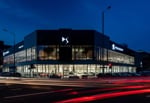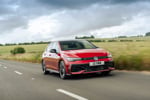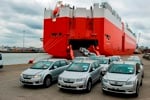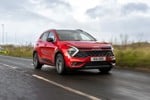Pendragon made pretax profit of only £21m on revenue of £2.5bn in the first half of the year.
With demand falling more heavily in the second quarter than the first, and July and August down further, profit in the second half could be zero or worse.
The dividend was cut from 2p to 0.5p. That will save £19 million in the year if the second half dividend is also only 0.5p, which looks likely.
In other words, by surrendering their income, shareholders will make almost as much for Pendragon as Pendragon will make for itself buying and selling 350,000 cars, selling parts and services and running a lease fleet, a Ford parts company and a software company.
Yet Trevor Finn, the chief executive, is oddly comfortable given the conditions in the market.
He is expecting new car demand in the second half to be down 15%, and expecting a further 7.5% demand drop in 2009 but believes he knows how to deal with it.
To survive within that environment, there will have to be more big cost savings to earn enough to service the debt. There will be further closures of loss-makers, streamlining of management and sale of property.
The collection of properties for sale – including Reg Vardy headquarters in Sunderland – could raise £56m.
Together with the £44m retrieved from stock and debtors in the first half, that could be positive cash of £100 million for the year.
“Used car demand is less transparent; we expect it to be under pressure but possibly flat year on year,” said Finn.
Average prices and stocking costs
Pendragon will be selling more of its own trade-ins, meaning that the average price falls and stocking cost falls also.
The policy was in place in the first half, and the figures showed that profit per unit grew £26 on the same period the previous year to £751. On new cars by comparison, the profit on each car fell by £84 to £949.
Finance agreements are tougher for customers than last year because of the credit crisis so they are expected to want to pay less as well as wanting more fuel-efficient cars with lower emissions.
Pendragon’s lease fleet made £6.2m of the group’s £41m of operating profit and residuals are not a liability so far. Finn said he made a good profit on residuals in the first half and would still be in profit on the second half.
Heavy and fuel-hungry cars have been falling by as much as 6% per month according to Glass’s guide but Finn is circumspect. “They can’t go on falling at that rate. It’s an adjustment.”













Login to comment
Comments
No comments have been made yet.